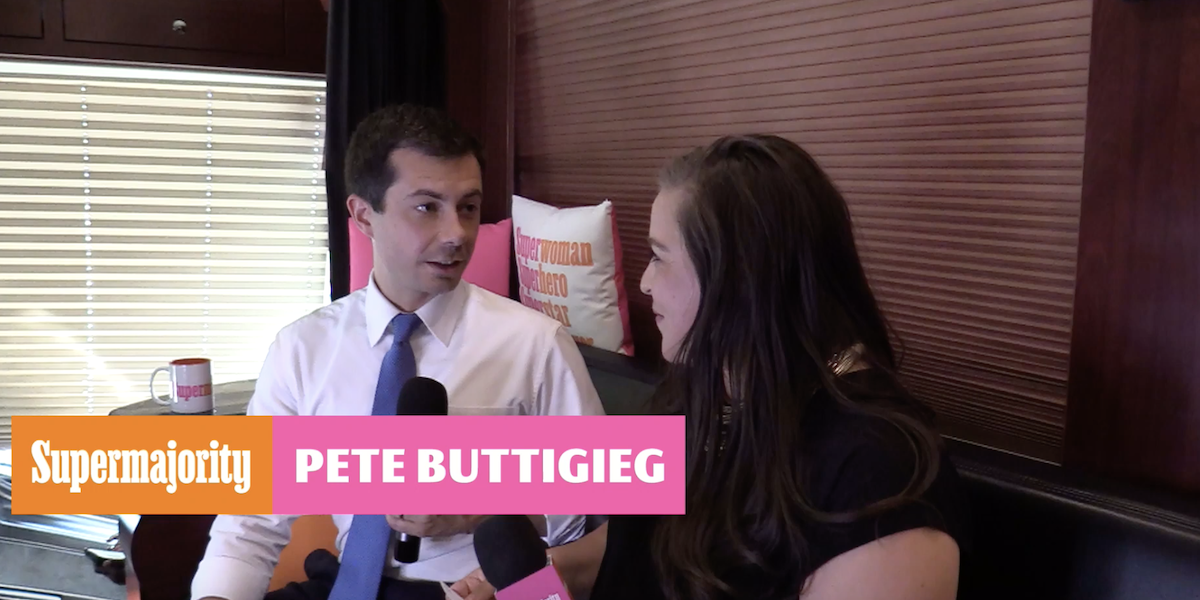Washington, D.C., Sept. 19 – Mayor Pete Buttigieg (D) may not have a long legislative record for voters to examine on various issues but he showed his knowledge of legislation regarding education for children with disabilities during an interview with the progressive organization Supermajority Tuesday.
Responding to a question from the mother of an 18-year-old student with autism, Buttigieg called for more attention to be paid to IEPs [individualized education plans] and for full funding of IDEA – the Individuals with Disabilities Education Act, which has yet to be fully funded since it was first passed in 1975. IDEA covers kids from birth through high school graduation or age 21, whichever comes first. Autistic students who need special education to make progress in school are supposed to be covered by IDEA.
IDEA not being fully funded, Buttigieg said, is “impacting our education system.”
“We need to make sure that educators and administrators are trained in how to support kids with autism because it’s way more kids than you would think, and we’re learning about this as time goes on [and] more diagnoses happen and more families and kids come out of the shadows,” Buttigieg added.
When the South Bend mayor spoke about educators needing training, he is speaking from experience, as his husband Chasten Glezman used to work in theater education for autistic children and now works as a seventh-grade humanities teacher, a class that includes students on the spectrum.
His husband’s experience “shows me just what is possible if you have teachers equipped with the right kind of insight and expertise – and frankly just the right resources to help support these kids.”
Buttigieg, who has hired staffers with disabilities and sent a video message using American Sign Language to a deaf supporter, also mentioned that he has learned more about autism from families he has met and “spent time with on the campaign trail.”
The presidential hopeful released his healthcare plan just a few days later, Medicare for All Who Want It. This plan includes mental health parity, meaning that coverage and treatment for mental health and substance use disorder will be provided on equal terms as treatment for physical conditions.
Autism on the Campaign Trail
Buttigieg is not the first candidate to mention autism on the campaign trail. Andrew Yang mentioned his autistic son during the August debate and a CNN town hall in April.
“As president, I would champion a federal program to help funnel money into the schools and our communities, and make sure that burden is not on the states,” Yang said at the April town hall. “This is a federal responsibility and a federal initiative I would be thrilled to lead.”
Likewise, when Sen. Amy Klobuchar was asked about keeping students safe from shootings, she talked about school safety for students with disabilities in a crisis, specifically mentioning a young boy with autism who was killed at Sandy Hook.
Most schools do not have emergency plans for evacuating students with disabilities including students who use a wheelchair or have another physical limitation, students who are deaf or blind, students with sensory processing issues and students with autism. Without federal guidelines, what schools do during an emergency is left to districts and individual schools to decide.
Presidential candidates have the opportunity to highlight important policy issues – including the importance of education – and safety – for children with disabilities.
Read Buttigieg’s Full Response:
“IEPs need to be adapted to support children with autism. Also, more broadly, the federal law that creates opportunities for kids with different abilities – IDEA – needs to be fully funded. It hasn’t been. And that’s impacting our education system.
“We need to make sure that educators and administrators are trained in how to support kids with autism because it’s way more kids than you would think, and we’re learning about this as time goes on. more diagnoses happen and more families and kids come out of the shadows.
“There are so many contributions that people, kids and adults, with autism can make but we’ve got to unlock their potential, too. It is so important. That’s something I’ve learned about a lot from families that I spent time with on the campaign trail.
“My husband actually used to work in theater education for kids with autism and seeing what he’s been able to bring out of students that he’s had in his humanities class in seventh grade too, shows me just what is possible if you have teachers equipped with the right kind of insight and expertise – and frankly just the right resources to help support these kids.”

Be First to Comment